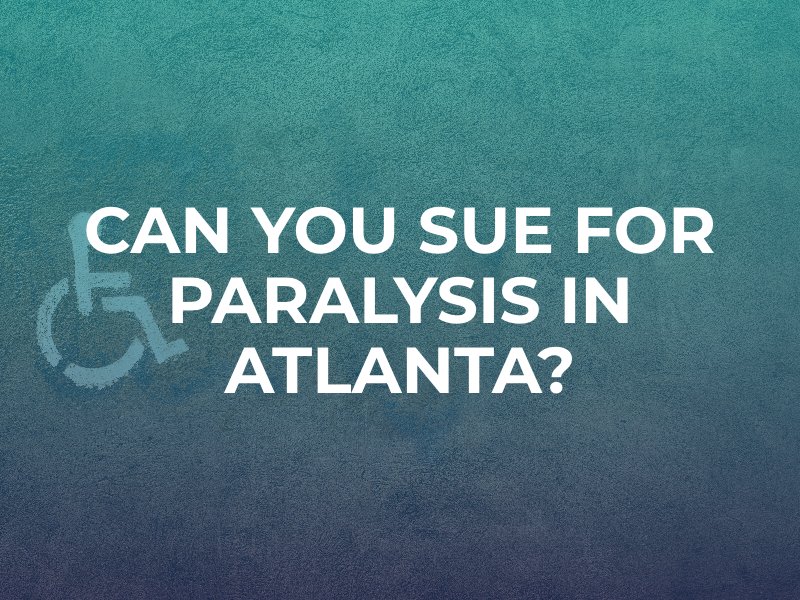Can You Sue for Paralysis in Atlanta?
There are times when individuals sustain severe injuries that lead to various levels of paralysis. In the event these injuries are caused by the careless or negligent actions of another individual or entity, the injury victim may be able to file a personal injury lawsuit in order to recover compensation for their losses. Here, we want to examine what it means for a paralysis case to become a viable Atlanta personal injury claim against another party.

How Did The Injury Occur?
Paralysis can occur in a variety of ways. Some of the most common causes of paralysis include spinal cord injuries, strokes, nerve disorders, and various other diseases or illnesses that can lead to paralysis. Anytime a person is unable to make voluntary muscle movements in a specific section of their body, this can be considered paralysis.
In order to determine whether or not an individual can recover compensation for paralysis depends on how the paralysis occurred in the first place. In the event that the careless or negligent actions of another individual or entity led to the paralysis, the individual may be able to recover compensation for their losses.
The Elements of Negligence
There may be various parties that could be held responsible for another person’s paralysis. This can include drivers of vehicles, doctors or surgeons, property owners, and any other party whose negligence led to the paralysis.
There are various elements of determining whether or not another party was negligent:
- Duty. It must first be established that the alleged negligent party (the defendant) owed a duty of care to the injury victim (the plaintiff). The exact duty of care will vary depending on the situation at hand. For example, every driver on the roadway owes a duty to others around them, which means ensuring they operate their vehicle safely and within the confines of traffic law. Doctors or surgeons are required to uphold the standard medical care for their particular area and procedure.
- Breach. After establishing that a breach of duty was present between the plaintiff and defendant, it must be shown that the defendant breached their duty. The type of breach that occurs will also depend on the situation at hand. For example, a driver could breach their duty of care by operating a vehicle while impaired or distracted. A property owner could breach their duty of care if they fail to make repairs to stairs or flooring on their property.
- Causation. After establishing that a breach of duty occurred, it must be shown that the breach is what caused the person’s injuries and paralysis.
- Damages. The final step in this process is establishing that the plaintiff sustained some sort of monetary loss as a result of the paralysis.
Compensation Available For a Successful Claim
Paralysis victims in Georgia may be able to recover various types of compensation if their claim is successful. This can include both economic and non-economic losses.
Economic damages for a paralysis claim include calculable expenses individuals are likely to endure. A defendant and their legal team can add up bills and receipts that come in to adequately calculate medical bills, rehabilitation or physical therapy, lost wages, out-of-pocket expenses, and more.
Non-economic damages revolve around more immeasurable losses a paralysis victim is likely to endure. This includes more immeasurable damages to compensate for a victim’s physical pain and suffering, emotional and psychological distress, and loss of enjoyment of life.